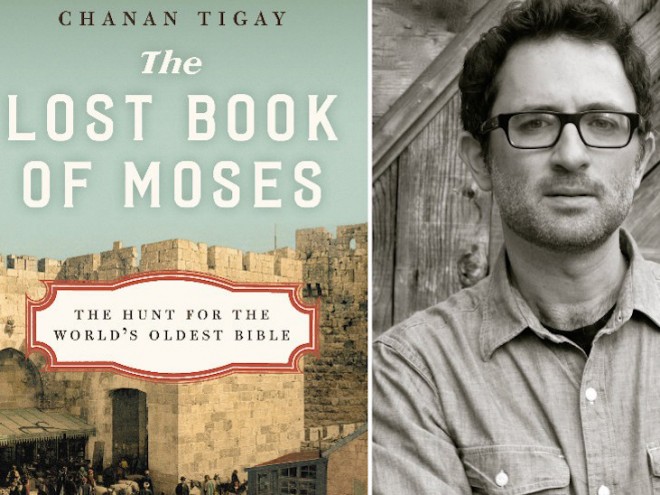In 1883, Moses Wilhelm Shapira, an antiquities merchant and inveterate self-promoter, announced that he had come into possession of the world’s oldest biblical manuscript. Surprising the scholarly and antiquity-collector communities, Shapira’s announcement challenged the divine authorship of the Bible in a period when new methods in historical criticism were already sending shockwaves across the fields of Biblical and Oriental Studies. Denounced as a fraud, Shapira fled and was found dead in Rotterdam six months later. The manuscript was not to be found.
Despite its tragic ending, Shapira’s fascinating life and the hunt for his controversial manuscript holds the reader’s full attention in Chanan Tigay’s The Lost Book of Moses: The Hunt for the World’s Oldest Bible. Tigay, fascinated by the cast of characters and the possibility of rediscovering a long-lost biblical manuscript, began his own quest to uncover the mystery of Shapira’s manuscript and his tragic death.
Tigay is a master storyteller, and his subject is excellent material for a scavenger hunt that follows the author around the world. At the book’s conclusion, Tigay has solved the riddle of Shapira’s death and uncovered the final clues to the source of his controversial manuscript. “After traveling to seven countries on four continents over the course of four long years, I had, at last, found the smoking gun. Remarkably, it came not in London or Jerusalem, nor Berlin, Halle, or Rotterdam,” writes Tigay in the final chapter of his book. With the mystery solved, Tigay takes the final pages of The Lost Book of Moses to reflect on his search and on Shapira. He sees Shapira as a complex character who was pushed by the events of his day to performing questionable acts, fashioning “himself a prime player in the revolutionary early days of biblical archeology. While many people aim simply to survive, Shapira lived audaciously.”
The Lost Book of Moses is at its core a book about a man, rather than about a manuscript, yet it is the search for the manuscript that draws the author to his mission and gives the reader the opportunity to explore the human condition in its complexity and ambiguity. The premise of this commendable work of nonfiction alone would make The Lost Book of Moses an appealing read, even if the secret of the manuscript had never been solved.




